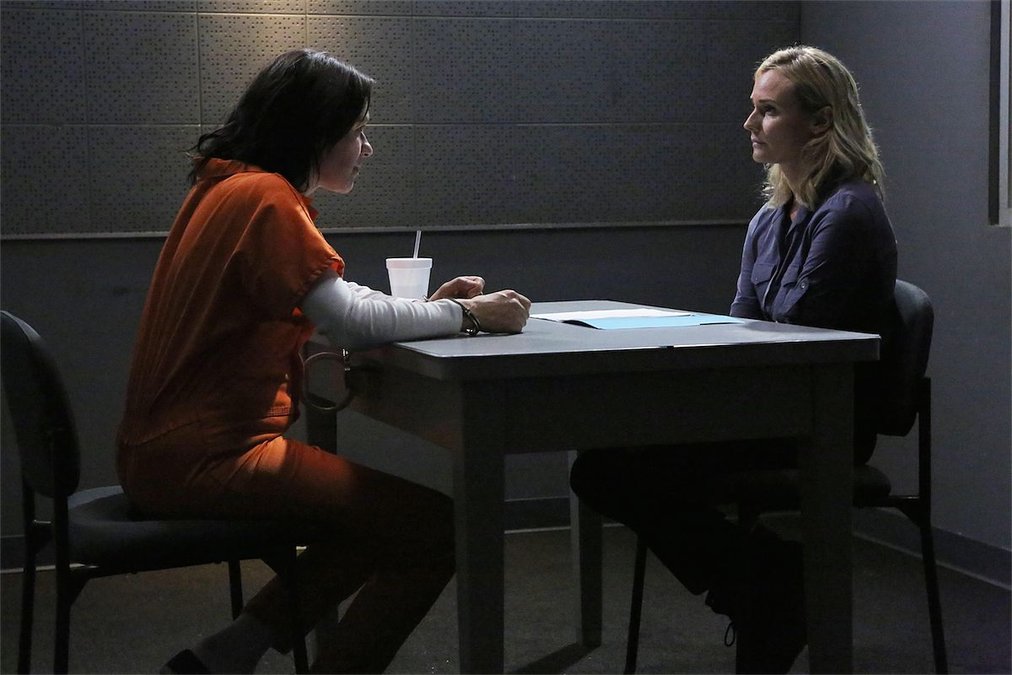 The Secret Life of Walter Mitty (Dir. Ben Stiller)
The Secret Life of Walter Mitty (Dir. Ben Stiller)
The trailer for Ben Stiller’s newest directorial effort is life-affirming, anthemic, and seems like a heartstring-puller in the best possible way. Trailers are often misleading. The Secret Life of Walter Mitty is occasionally satisfying white-guy wish fulfillment, as if Network’s Howard Beale were in a 2-hour, beautifully choreographed fantasy sequence. Depending who you are, this might sound like the best possible scenario for a trip to the multiplex, and that’s exactly what Twentieth Century Fox is banking on with its Christmas Day release.
Stiller is a capable multi-hyphenate, proven by his successful Hollywood farce Tropic Thunder. He does double duty again here as the title character, a backroom photo editor at Life magazine who suffers flights of fancy when he often zones out mid-conversation. The dreams inside his head are much more fantastical than the ones he stifles in real life. His secret crush on a coworker, Cheryl (Kristen Wiig), goes mostly unnoticed until a work snafu unwittingly unleashed by freelance photographer, Sean O’Connell (Sean Penn), brings them together.
Mitty is above all a fantasy film, and a fairly good one at that. It’s bolstered by an appropriately epic soundtrack that does too much of the lifting, such as when Walter gets on a plane for Greenland accompanied by the sounds of Arcade Fire’s “Wake Up;” it’s a bit too on the nose, though not ineffective. This is the film’s main problem: everything is brought together to be uplifting and inspirational, which eventually tips its earnestness into manipulation. Still, it’s easy to see this movie doing well at the box office and gaining considerable late-term Oscar traction during the business end of the qualification season.
The Immigrant (Dir. James Gray)
In The Immigrant, James Gray tackles American ethos in all its glory and occasional disrepute, no small task considering anyone who sees the film may have an intensely personal connection to the material. Marion Cotillard is heartbreaking as Eva, a Polish woman who arrives at Ellis Island in 1921 and is immediately separated from her sister Magda, but is rescued by a charming but shady man, Bruno (Joaquin Phoenix), who runs an underground peep-show/prostitution ring. His admirable rescue is quickly tarnished as Eva becomes one of his working girls. She quietly acquiesces to gain money for her sister, who is temporarily being held in an infirmary back on Ellis Island. The stakes are high and the setting, in meticulous period detail, brutal.
Gray’s film is reminiscent of Lars von Trier’s Dancer in the Dark, not in presentation or aesthetic, but as a simple melodrama of a martyred woman. Like Bjork’s Selma, Eva is torn between doing what is right and compromising her principles. The growing chasm between the two is classic melodrama, serving as the point of entry for audience engagement; this is where The Immigrant fails and Dancer succeeds. Eva’s situation devolves quickly, and slowly, but there’s something about it that never feels genuine. Perhaps the film’s chilly affect obstructs any emotional engagement, or maybe it’s Gray’s and Richard Menello’s increasingly silly script, but as the world continues to pile itself onto this female tabula rasa, her plight becomes less interesting. This has nothing to do with Cotillard, whose performance carefully travels a complex range of emotions. The film she’s in, however, works more assiduously to support her, and as a result, her character feels as if it’s emigrated into the wrong film.
Bastards (Dir. Claire Denis)
Claire Denis is a tough director, and her new film, Bastards, is maybe her toughest. To qualify: “tough” isn’t meant to assign an unfortunately gendered understanding of the word, but to ascribe a difficulty factor. Her films aren’t easily processed, nor are there any easy answers or character motivations. Part of their greatness comes from the experience of wrestling with Denis’s intentions and trying to understand what it is she’s trying to convey. Some films, like 35 Shots of Rum, are lyrical and free, whereas others, namely Beau Travail, are beautiful mysteries. An immediacy connects the films in Denis’s catalog, and Bastards, though dark and nearly impenetrable, gets under your skin and stays there.
Everyone is a bastard in Bastards, but not all bastards are created equally. Marco (Vincent Lindon) is a steely sailor who takes leave to come to the aid of his sister, Sandra (Julie Bataille), whose business partner committed suicide, and niece Justine (Lola Creton), a recently traumatized victim of sexual violence. There’s a lot of moving parts in this insidious noir thriller, and in typical Denis fashion, not much to work with. As Marco tries to put the pieces together and avenge Justine’s attack, he begins a calculated relationship with a new neighbor, Raphaelle (Chiara Mastroianni), whose billionaire husband Edouard was somehow involved in the financing of Sandra’s company. The deceitful web grows more enmeshed when Marco’s investigation into Justine’s attack reveals even darker truths about both his and Raphaelle’s family. If you’re up for the challenge, Bastards is a film that provides little but rewards greatly. The last scene is particularly shiver-inducing.
Gloria (Dir. Sebastian Lelio)
It goes without saying that films about women over 50 are rarer than few and far between. Sebastian Lelio’s Gloria is one such entry, and it’s the feel-good film of 2013. Chilean star Paulina Garcia plays the senior namesake, a woman who frequents social events and presents herself proudly in a quest to find love and happiness once again. Her children are grown and self-sufficient, while Gloria is happy but not terribly satisfied. From her introduction at a senior mixer, it’s clear that Gloria is full of life: well-dressed and raring to go, she’s not one to let life pass her by. She’d be a catch at any age, let alone at 58, when most of her peers are settling into retirement.
Lelio’s unfussy script and direction smartly let Gloria’s welcoming personality take center stage, as her daily routines present a compassionate picture of a woman you’d clearly like to know. Thankfully, Lelio lets you. Gloria dances at parties, takes a yoga class with her daughter, and scoffs at a neighbor’s hairless cat that perpetually enters her home; she’s not a maternal cliché. A welcome romantic endeavor comprises the majority of the film’s dramatic action. Rodolfo is a kind man who loves Gloria but struggles with the self-imposed obligations of coddling his adult children and ex-wife. Their relationship has its ups and downs, but Gloria emerges in a final sequence that is nearly impossible not to grin through.
The film was a massive hit in its home country, and with any luck, it could become a crossover hit. Garcia’s performance is one of the year’s best. What makes the film so endearing is that it never really tries to be. Gloria doesn’t pander to a senior audience, but rather presents a fully rounded character for audiences of all ages, one in whom we can find comfort and be inspired.
— John Oursler

The New York Film Festival celebrates 51 years and runs from September 27 to October 13, 2013. For a complete schedule of films, screening times, and ticket information, please see the Film Society of Lincoln Center’s official site.








